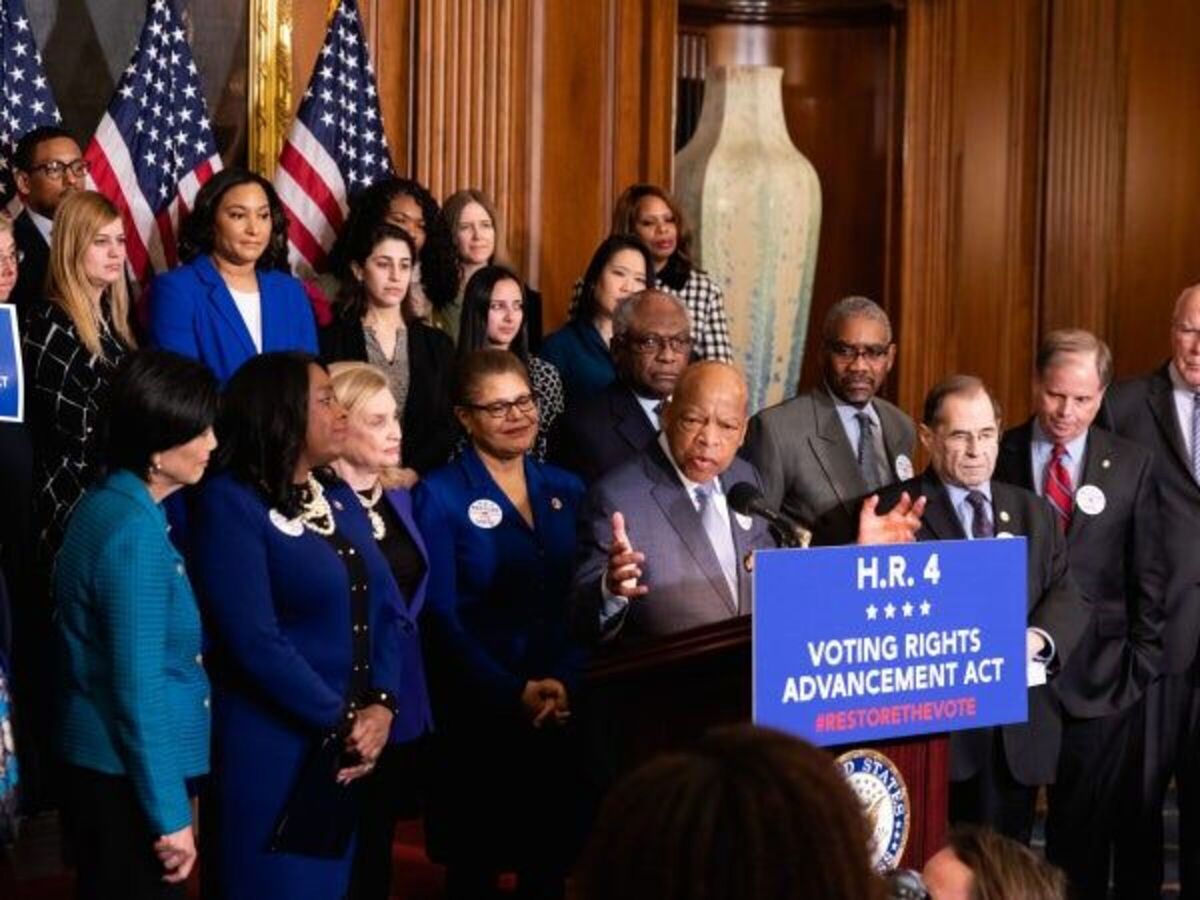Image


Washington, DC ~ Wednesday, October 6, 2021
Remarks as Prepared
Chairman Durbin, Ranking Member Grassley, and Members of the Senate Judiciary Committee, my name is Kristen Clarke and I serve as the Assistant Attorney General for the Civil Rights Division of the U.S. Department of Justice. Thank you for the opportunity to testify on the department’s work to implement and enforce the Voting Rights Act and the need to revitalize and restore the Act.
The Voting Rights Act is, as President Johnson said “one of the most monumental laws in the entire history of American freedom.” It is a law that has helped to truly transform American democracy.
However, the progress that we have made is fragile. Recently, there has been a resurgence in attacks on voting rights including cuts to early voting periods; burdensome restrictions to register or vote; racially gerrymandered redistricting plans; polling sites eliminated or consolidated in communities of color; eligible voters purged from the rolls, and more.
Before Shelby, the preclearance process enabled the department to swiftly block the implementation of many discriminatory and unconstitutional voting practices. Through Section 5, the department blocked over 3,000 voting changes, helping protect the rights of millions of citizens. In over 60% of blocked voting changes, there was evidence of intentional discrimination. We also know that the preclearance requirement deterred many jurisdictions from adopting discriminatory changes in the first place.
Too many jurisdictions have viewed the Shelby ruling as an invitation to adopt rules that disadvantage minority voters. Today, jurisdictions that want to restrict voting rights have what the Supreme Court memorably called the “advantage of time and inertia.” These new laws can be challenged only through long, protracted, resource-intensive, case-by-case litigation which we have pursued in states like Texas and North Carolina.
We are on the cusp of another potentially transformational moment. A new redistricting cycle has commenced. 2020 Census numbers show the U.S. has become an increasingly diverse nation, with population growth attributable to increases in the number of people of color.
Absent congressional action, this redistricting cycle would be the first in half a century without the full protections of the Voting Rights Act and jurisdictions may be poised to dilute the increased minority voting strength that has resulted from these natural demographic changes. Without preclearance, the Justice Department will have limited tools to obtain documents and assess where voting rights are being restricted – thereby hampering enforcement efforts.
The John Lewis Voting Rights Advancement Act addresses several of the barriers I’ve referenced, which are impeding the department’s efforts to protect American citizens’ right to vote. First, the Act responds to the elimination of the preclearance coverage formula by updating the relevant criteria so that Section 5 coverage is tied to current conduct by jurisdictions. Second, the bill provides greater clarity regarding the appropriate legal standard in Section 2 vote denial cases. Third, the legislation gives the department authority to compel the production of documents and materials relevant to investigations of potential voting rights violations. Fourth, the bill puts in place new measures to safeguard the rights of Native American and Alaskan Native voters.
In 1965, Congress enacted and in 1975, 1982 and 2006, reauthorized a statute that provided the strong medicine needed to remedy voting discrimination and enforce our Constitution’s commitment to ensuring that no citizen’s right to vote would be abridged on account of race or color. Congress must act now to restore the Voting Rights Act to prevent us from backsliding into a nation where millions of citizens, particularly citizens of color, find it difficult to register, cast their ballot and elect candidates of their choice. The Justice Department welcomes this opportunity to work with Congress to revive this bedrock civil rights law.
Thank you.
Speaker: Assistant Attorney General Kristen Clarke